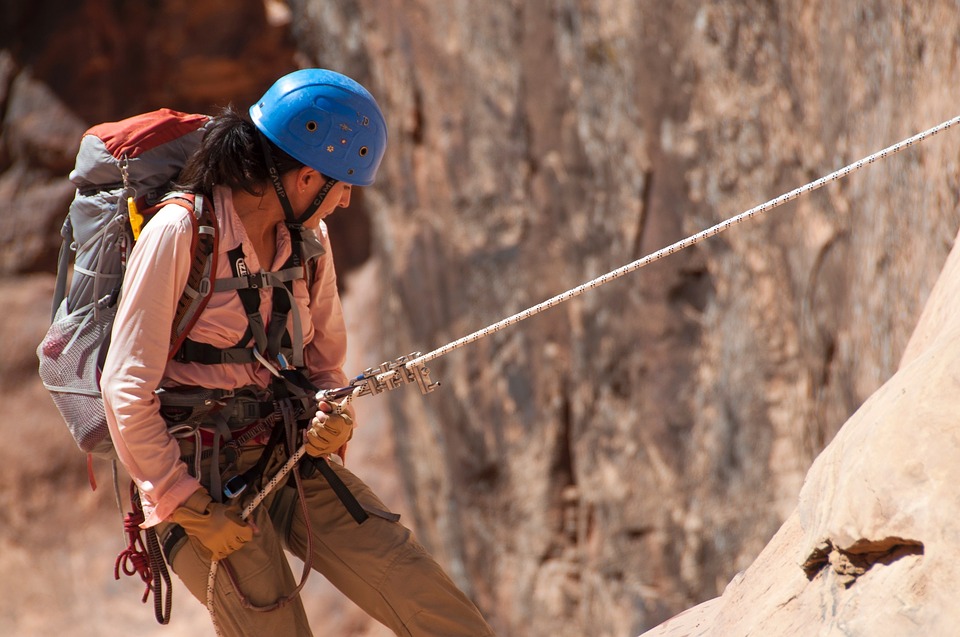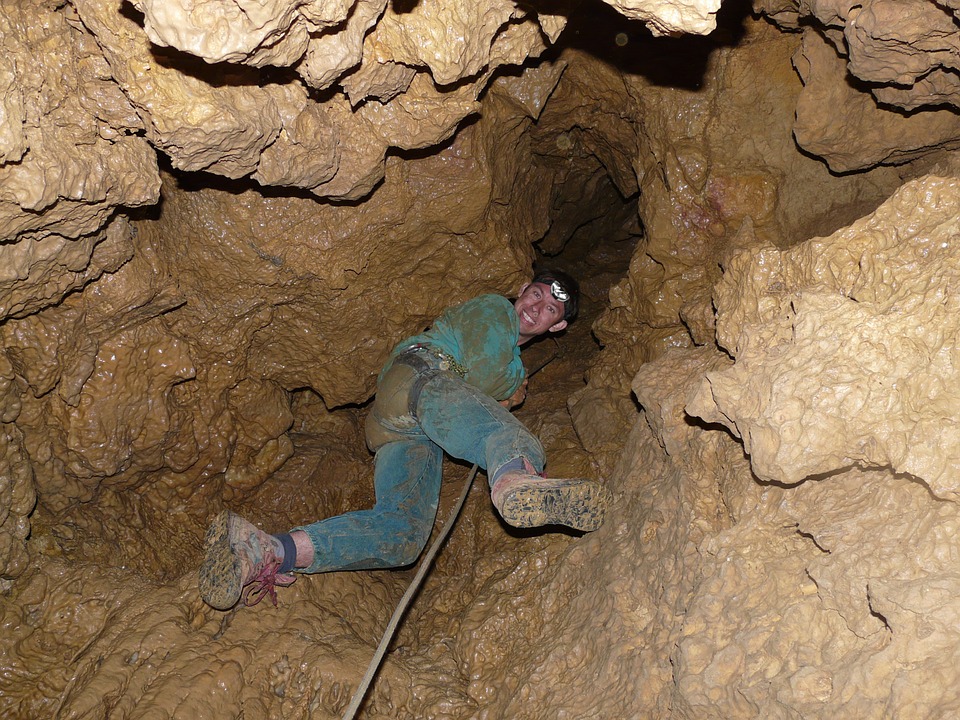 The word ‘spelunking’ has been in the news a lot recently due to the extraordinary rescue of the Thai boys and their football coach who were trapped in a flooded cave. While the boys and their coach are now safely back home, the interesting word ‘spelunking’ has stayed in the minds of many language learners, so we have decided to bring this strange word under the language microscope for our latest blog post. Grab your headlamp and read on to explore the meanings and differences between the words spelunking, potholing, caving and speleology.
The word ‘spelunking’ has been in the news a lot recently due to the extraordinary rescue of the Thai boys and their football coach who were trapped in a flooded cave. While the boys and their coach are now safely back home, the interesting word ‘spelunking’ has stayed in the minds of many language learners, so we have decided to bring this strange word under the language microscope for our latest blog post. Grab your headlamp and read on to explore the meanings and differences between the words spelunking, potholing, caving and speleology.
Spelunking, Caving and Potholing
Caves are underground spaces inside a rocky mass, such as a mountain or cliff. ‘Spelunking’ is an American English word that expresses the activity of exploring these wild caves. In British English, we call this ‘potholing’. Some people also call this activity caving’.
Spelunking is a hobby, a sport or pastime, as opposed to a profession. But what is the difference between caving and spelunking or potholing? The difference is that caving generally refers to exploring horizontal passages in rock, while spelunking or potholing refers to exploring vertical passages.
Caves can contain potholes and vice versa.
Spelunking or potholing is generally considered more dangerous than regular caving, as vertical drops are obviously more perilous than horizontal passages.
This is why spelunking or potholing requires specialist equipment used for climbing and abseiling up and down potholes and into and out of caves.

Abseiling – image source
Speleology and Latin Origins
The origins of the word spelunking begins with the term ‘speleology’.
‘Speleology’ means the scientific study of caves. From this word, we also get the adjective ‘speleological’ and the profession ‘speleologist’ (i.e. a person who studies cave systems for a living).
The word speleology comes from French, where it came into usage in the the late 1890s when the lawyer Edouard Martel founded the Société de Spéléologie.
The French language took the word from the Latin ‘spelaeum’, which means cave, cavern, den, or grotto. The Latin word spelaeum itself derives from the Greek ‘spelaion’, which means cave.
The word spelunking arrived in the United States in the 1940s to describe a person who explores caves as a hobby or sport.
The word ‘spelunk’ used as a noun meaning ‘cave’ existed in English for a short time but this word was last recorded in 1563. In the 19th century, the adjective ‘speluncar’ was used to refer to the activity of caving.
Thai Cave Boys Rescue
Along with many others, we followed news of the Thai boys and their football coach trapped in a flooded cave for nearly three weeks. All those trapped inside were safely rescued, however, Navy Seal Saman Kunan tragically lost his life while helping to prepare for the rescue due to a failed oxygen tank.
The young football team became trapped inside the Tham Luang cave network during a trip on 23rd June, after a rush of flood water blocked them in and forced them further into the cave system. They remained perched on a ledge about 2 miles from the cave entrance.
The group were trapped in the darkness for nine days until two British divers discovered them. The boys survived on water dripping from the cave walls and snacks they had brought with them.
The team’s 25-year old coach, a former Buddhist monk, helped the youngsters to cope mentally by teaching them some meditation techniques.
The dramatic rescue operation required teams of specialists, diving equipment and oxygen tanks, as those trapped in the cave had to use diving equipment and swim through the cave system to safety.
Spelunking in the EFL Classroom
Since the dramatic cave rescue, many language learners have been asking about the origins of the word ‘spelunking’ and the differences between spelunking and potholing.
These are topical words to explore in the EFL class in relation to the recent news story, which could also be used for a comprehension lesson.
The origins of the word spelunking are also useful for using as part of an EFL lesson on French and Latin origins of words and the differences between American and British English.
Share your thoughts
Did you follow the news story of the cave rescue?
Have you ever been caving, spelunking or potholing?
What do you call this activity in your native language?
Have you discovered any other new words from following news stories?
Do you think topical news stories make good EFL resources?
Let us know your thoughts in the comments.


